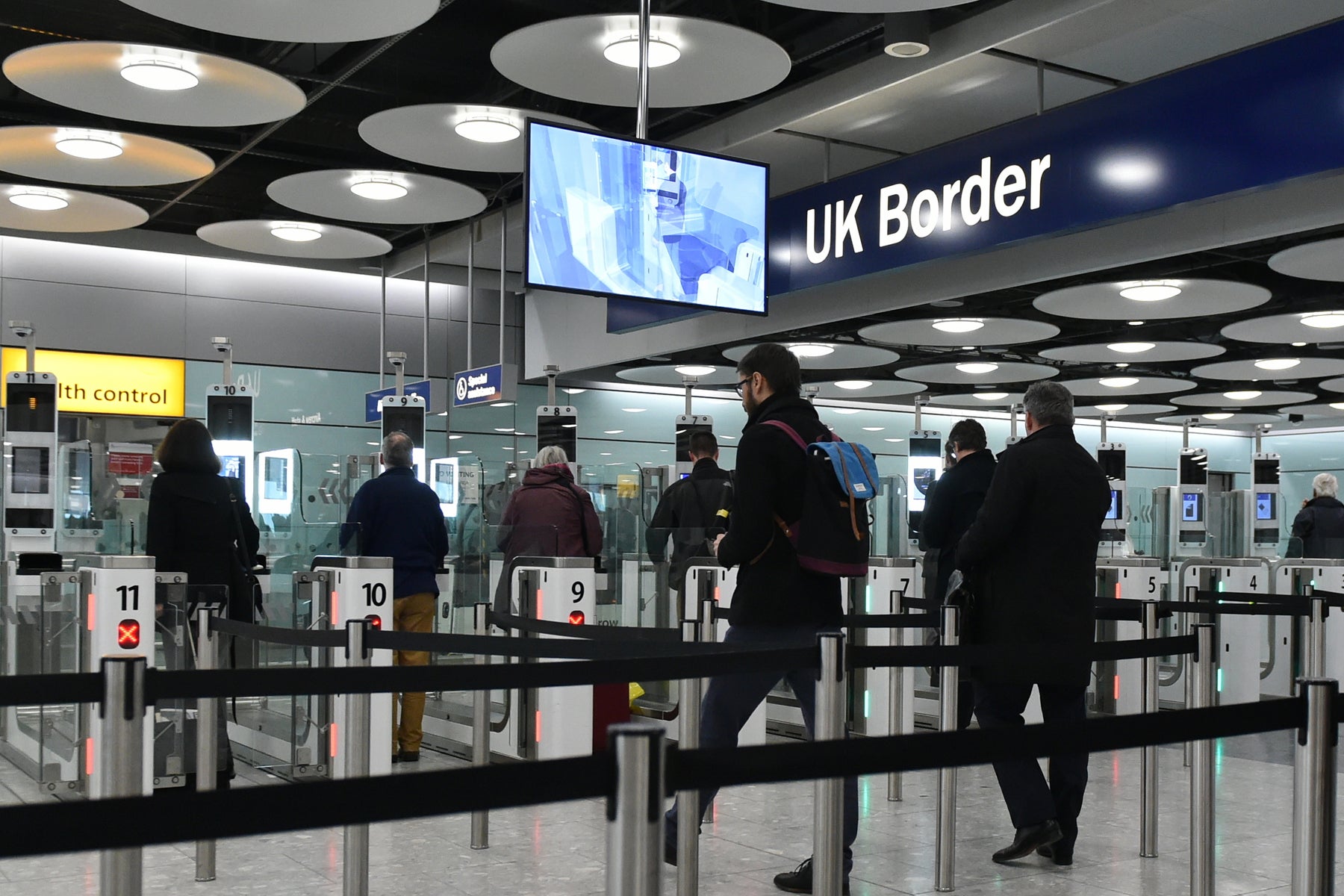Access all areas? Only if you consent to biometric bureaucracy
The Man Who Pays His Way

Your support helps us to tell the story
From reproductive rights to climate change to Big Tech, The Independent is on the ground when the story is developing. Whether it's investigating the financials of Elon Musk's pro-Trump PAC or producing our latest documentary, 'The A Word', which shines a light on the American women fighting for reproductive rights, we know how important it is to parse out the facts from the messaging.
At such a critical moment in US history, we need reporters on the ground. Your donation allows us to keep sending journalists to speak to both sides of the story.
The Independent is trusted by Americans across the entire political spectrum. And unlike many other quality news outlets, we choose not to lock Americans out of our reporting and analysis with paywalls. We believe quality journalism should be available to everyone, paid for by those who can afford it.
Your support makes all the difference.According to the holiday company that celebrated its 80th birthday this week, “When it’s wet - it’s fine at Butlin’s.”
The firm launched its first holiday camp in Skegness in April 1936. And I have had the privilege of leafing through its back pages in the vaults of the History of Advertising Trust.
With a sales pitch like this - “Blue sea, golden sands, beautiful girls, tons of sunshine, pots of beer” - why would anyone ever want to leave the UK? Well, perhaps to enjoy a Butlin’s escape on the island of Grand Bahama, where half a century ago the firm promised “British subjects don’t need passports.”
In 2016, annoyingly, British subjects do need passports for nearly 200 countries. And a good proportion of the people who contact me at are concerned about a passport issue: a failure to renew it in good time, other countries’ attitudes to it, or the consequences of losing it either accidentally or through malice.
Which is why it is time to transport the British traveller, bureaucratically speaking, from the 19th century to the 21st.
When was the last time you had to handle a real airline ticket? You know, the slim booklet that employed what once had comprised cutting-edge carbon-copy technology. My bet is 2008 or earlier. In the summer of that year, the International Air Transport Association declared: “The paper ticket has served us well, but its time is over.”
Today your ticket is stored in an airline’s reservations computer. And following the enlightened policy introduced in 1995 by easyJet (which has never gone to the expensive bother of issuing paper tickets), all you need do is demonstrate your identity. “Photo ID is compulsory on all flights,” says easyJet - a stipulation echoed, as far as I know, by every other airline. So for British travellers, that means a passport. Or does it?
Consider why the passport exists. Initially, the document was issued to the few people fortunate enough to go abroad for reasons other than warfare. Rather than a meek request for permission to enter a foreign country, it was a declaration of travel intentions - together with a demand for safe passage, as echoed by the current Foreign Secretary’s quaint demand “to allow the bearer to pass freely without let or hindrance”.
These digital days, a passport is intended to signify that the holder is who they say they are. But as you and I know, that involves some combination of check-in agents, departure-gate staff and passport officials glancing at your attractive visage and reconciling it with your name, while under pressure to process hundreds of passengers as swiftly as possible. In 2016, relying upon stressed, overstretched staff is pretty primitive way to proceed. The best way to prove you are who you say you are is via a feature that distinguishes you from the other seven billion people on the planet. What we need is a biometric bureaucracy. Sounds unappealing, I agree, but I fear it is the least best option.
The current British e-passport relies on facial biometrics. In the past, the US has been happy with hand geometry to confirm a person's identity - even though, from a user perspective, it seemed an incredibly primitive measure, involving splaying your thumb and fingers over some pegs. But from the research I have seen, it appears that (short of donating DNA) fingerprints or iris recognition are the most reliable indicators.
While you might feel uneasy about the invasive implications of biometrics, they have been seized upon by travellers who benefit from quicker processing. Until it was abruptly scrapped in 2012, the UK’s Iris Recognition Immigration System scheme enabled pre-registered passengers to enter Britain in the blink of an eye. And each day thousands of travellers between mainland China and Hong Kong whizz through the “e-Channel” at the touch of a finger.
In a few years, a brave nation or an airline will invite you and me to skip the queue by confirming our identity biometrically, through a dedicated fast-track lane. Past evidence suggests this will be an instant hit with the traveller. With passport officials released from the tedious business of reconciling the face in front of them with the unflattering photo in the passport, they can get on with more valuably deploying their expertise to assess individual travellers whose behaviour invites questions. You and I can get where we need to be that bit faster. And if you’re unhappy with the notion of biometric bureaucracy? Stick to Skegness.
To read Simon Calder's account of Butlin's first 80 years, visit bit.ly/Butlins80
Join our commenting forum
Join thought-provoking conversations, follow other Independent readers and see their replies
Comments